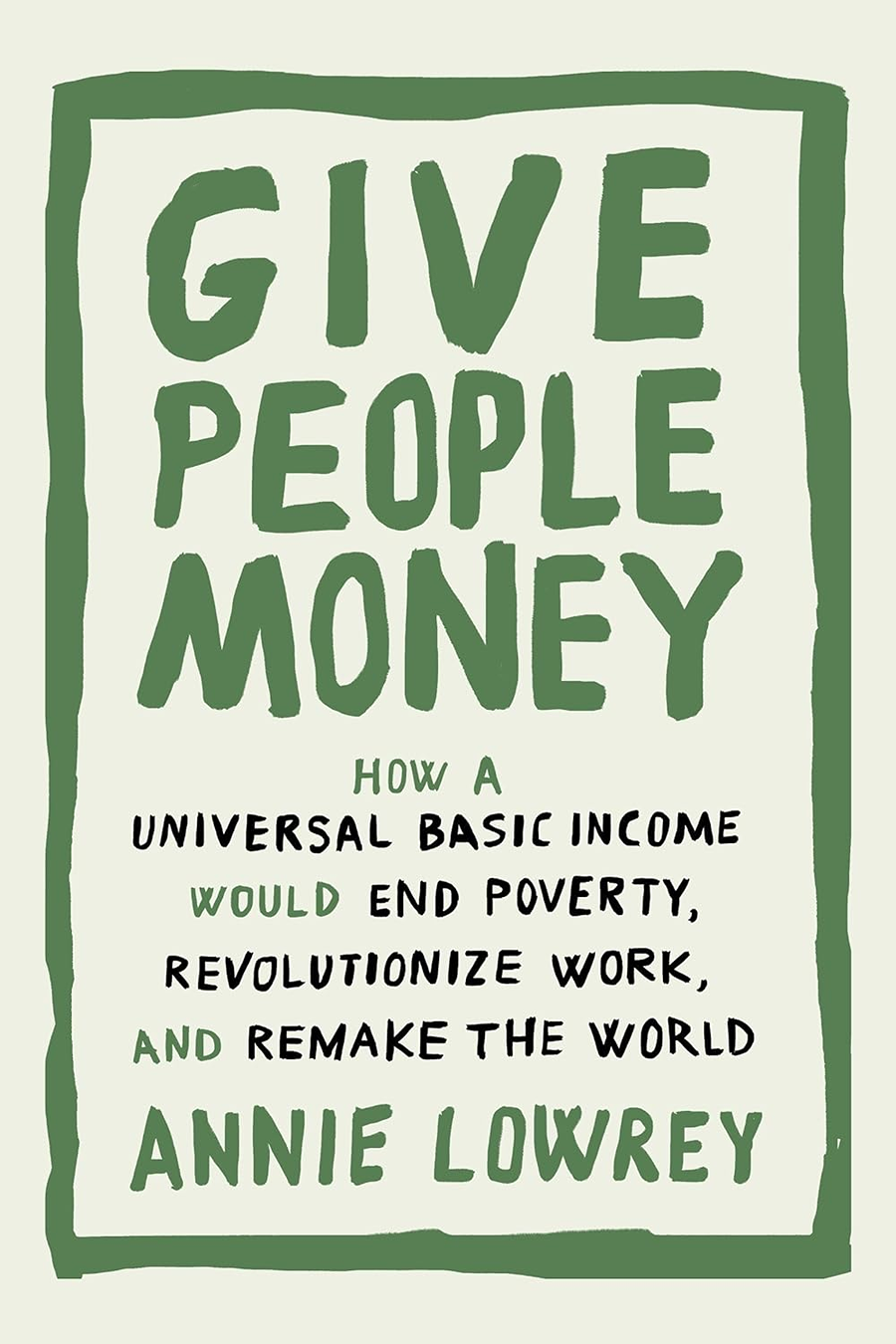The Many Benefits of Universal Basic Income

Basic Income is an idea whose time has come. It’s already been used in some countries, and with great effects. Give People Money is a complete guide to how it works. It’s basically giving everyone a set income, then anyone can care for others, take part-time or full-time work or do what they love, and not lose it. It’s great to create a life/work balance for everyone, and can eliminate benefit fraud and debt.
The present benefits system is expensive to run and complicated, and promotes a stigma so many people don’t claim benefits they are entitled to. By ‘ripping up the book’ and starting again, Basic Income gives people more freedom to do what they want, and if that’s being a full-time parent or carer (or taking a little part-time job at the market or volunteering at the animal shelter), everyone wins.
Basic Income is paid to individuals (not households) and children also get it, but on a lower scale. Only legal citizens and legal immigrants receive it, but there’s no check on jobs, wealth and no forms.
The payment is made at the same time each week, and is intended to cover food and basic rent costs. Some people may get additional benefits for housing or disability.
Examples from Around the World

- Alaska, USA: Everyone who has lived in Alaska for over a year gets a yearly dividend from oil revenues (ok, not eco-friendly but we’re giving an example of how it works), called the Permanent Fund Dividend. It usually lands between $1,000 and $2,000. People use it for bills, education, or just cushion against surprises.
- Iran: In 2011, Iran replaced fuel subsidies with direct cash payments to almost all citizens. While the amount changes with inflation, the structure sets a real precedent.
- Taiwan: Though not a full UBI, Taiwan pays every citizen a yearly “Citizen Dividend”. The sum depends on government profits from national resources.
- US Pilot Projects: Cities like Stockton, California started giving $500 a month as part of Mayors for a Guaranteed Income. Dozens of other US cities have tried similar pilots.
Why Give Money to Rich People?
This is an argument often touted. As mentioned above, the reason is that the cost of means-testing, is usually more than just giving a set income to everyone, saving billions of pounds in hiring out staff, and billions of hours in no-longer needed paperwork and checks.
And who knows – some of the rich receiving the money may give it to small charities. Stranger things have happened.
Why Give Money to ‘Do Nothing?
This is usually an argument touted by idiots, who have no idea how much people struggle on the bottom rung of the financial ladder. Most people who are very poor (whether homeless, single parents, people with health problems, cash-strapped pensioners etc) rarely ‘do nothing’.
They are struggling to survive, visiting different food shops to seek produce on sale to pay the bills, walking miles to food banks, using libraries to search for jobs.
Or more commonly, raising children or caring for elderly relatives. Giving people money helps provide financial stability for the ‘backbone people’ of England, who prop everyone else up.
Voices Calling for Basic Income
- Martin Luther King Jr.: Long before UBI entered the mainstream, King called for a guaranteed income as the surest way to “abolish poverty.” He believed dignity started with meeting basic needs, and cash in hand gave everyone a real shot at stability.
- Andrew Yang: Running for US president in 2020, Yang turned UBI into a household phrase with his “Freedom Dividend” plan—$1,000 a month for every American adult, no strings attached.
- Mayors for a Guaranteed Income.: More than 100 mayors in the US, from big cities to small towns, formed this network to explore pilot programmes. They say direct cash works better than any bureaucratic maze of rules.
- The Green Party and SNP both include UBI or guaranteed income schemes in their official policies. They see UBI as a modern answer to rising insecurity and low pay.





